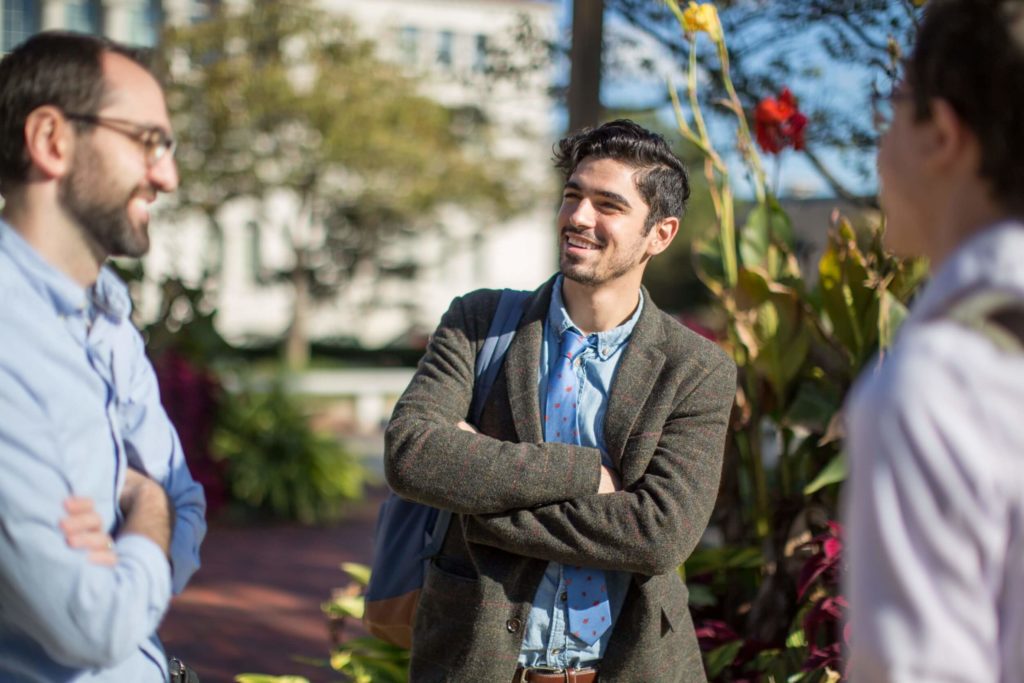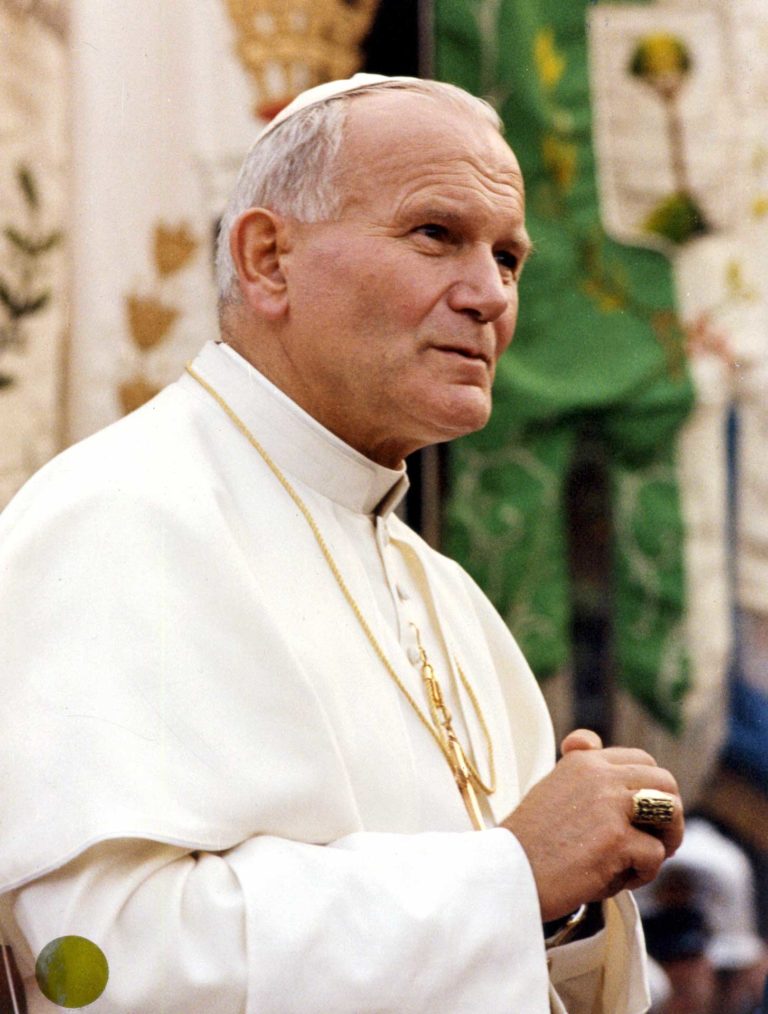The Cultural Dimension of the Institute: "Reading the Signs of the Times"
Cultural issues are central for the work of the Institute. The Institute considers the study of culture, in particular the culture of modernity as developed in America, to be an integral part of the clarification of fundamental theological concepts. The Institute engages this cultural study in light of the history of the Church and Christian thought, with special attention to the writings of the Second Vatican Council and John Paul II.
The aim of such study is to generate a “culture of life”: a culture whose members “see life in its deeper meaning, its beauty and its invitation to freedom and responsibility”; “who do not presume to take possession of reality, but instead accept it as a gift, discovering in all things the reflection of the Creator and seeing in every person his living image” (Evangelium vitae, 83). A culture of life is a culture wherein the Church’s understanding of sexual and family ethics, the body and gender difference, fatherhood and motherhood, filiation and fraternity, birth and death, find a home. The culture of life resists the “consumerist, anti-birth mentality,” or again the “contraceptive mentality,” characteristic of the “technocratic logic” lying at the heart of what John Paul II termed a veritable “anti-civilization” (Letter to Families, 13; cf. Familiaris consortio, 6; Fides et ratio, 15).

Marriage-Family as a Way of Life
Recognition of the cultural dimension of theology helps to explain the breadth of the Institute’s concerns in its study of marriage and the family. The Institute conceives the family as a way of life that is generative of a new culture centered in wonder, gratitude, and gift. The Institute approaches questions of morality in the light of the order of being itself: that is, within the context of the transcendentals—truth, goodness, and beauty—all of these integrated into the “liturgy,” or “work of glory,” that John Paul II insisted is “the fundamental destiny of every creature, and above all of man” (Crossing the Threshold of Hope, 18).
The Distinguishing Feature of the Institute's Study of Marriage and Family
The distinguishing feature of the Pontifical John Paul II Institute, in sum, lies in conceiving marriage and the family, and all the moral problems associated with these, within an entire vision of reality. The uniqueness of the Institute lies, further, in its anchoring of this vision of reality—and this marital-familial love—in God’s self-revelation as a trinitarian communion of persons (LF, 6: “The primordial model of the family is to be sought in God himself, in the trinitarian mystery of his life”).
The "New Evangelization"
It is thus in this distinctive way that the Institute carries on the work of John Paul II’s “new evangelization,” whose great task is to recapture “the ultimate meaning of life and its fundamental values” (FC, 8)—which, again, is done by examining “the relationship between the life of the person and his sharing in the life of the Trinity” (LF, 9). The family plays an essential cultural and ecclesial role as both the subject and the object of this evangelization (cf. FC, 53). Indeed, the late pope saw the role of the family in the new evangelization as decisive and irreplaceable, because in fact “the future of the world and of the Church passes through the family” (FC, 75).
Theological Presuppositions concerning Marriage and Family
The main presupposition guiding the Institute’s approach to study is thus that the person, and indeed the whole of reality, is best understood in terms of the trinitarian love of God revealed in Christ; and that this trinitarian love is expressed in a privileged way in and through nuptiality. This presupposition is articulated in various ways in the pontificate of John Paul II: (1) “The divine image is present in every man, in the communion of persons,” especially in the “‘we’ formed by the man and the woman” (LF, 6), that is a likeness to “the union of the divine persons among themselves” (Catechism of the Catholic Church, 1702; cf. 1878). (2) The covenant with the world that God establishes in Jesus Christ through his Church is one of nuptiality (CCC, 1612; cf. FC, 12). (3) The family is the “Church in miniature” (Ecclesia domestica: FC, 49). Christian marriage is an efficacious sign, or sacrament, of the love between Christ and his Church (CCC, 1617; FC, 3). (4) Marital-familial love is one of the two specific human vocations identified by revelation for the following of Christ (FC, 11). (5) “The sexual difference constitutes the very identity of the person” (Address to Institute Faculty, August 1999, #5). The body itself “manifests the reciprocity and communion of persons. It expresses this by means of the gift as the fundamental characteristic of personal existence.” John Paul II identified this internal aptness of the body for expressing love, or again this rootedness of the body in love, as the “nuptial attribute” of the body (Theology of the Body: Human Love in the Divine Plan).).
Bioethics and Technology; Person, Family, and Society
Within the fundamental orientation of its studies as described, the Institute gives special attention to two areas, the significance of which was stressed by John Paul II. The first concerns the “technocratic logic” lying at the heart of issues in bioethics today such as cloning, euthanasia, biogenetics, and “reproductive health.” Contrasting it with a civilization centered in the “splendor of truth” about “love,” “freedom,” “gift,” and “person,” the late Holy Father suggested that our contemporary “civilization of technology” is often “linked with a scientific and technological progress which is . . . achieved in a one-sided way” and which, consequently, leads to “agnosticism” and “utilitarianism” (LF, 13).
The second area concerns the relation between person and society. John Paul II stated this second concern thus: “The Christian response to the failure of individualist and collectivist anthropology calls for an ontological personalism rooted in the analysis of the primary family relations. The rationality and relationality of the human person, unity and difference in communion, and the constitutive polarities of man and woman, spirit and body, and individual and community are co-essential and inseparable dimensions. Thus, reflection on the person, marriage, and the family can be integrated into the Church’s social teaching and become one of its most solid roots” (Address to Institute Faculty, August 1999, #5). As this statement makes clear, the late pope rejected—as does the Institute—the dichotomy commonly assumed today between (so-called) “personal” or “private” ethics (i.e., sexual and family ethics) and (so-called) “public” or social ethics.
In accord with this twofold concern of John Paul II, the Institute encourages study in the areas of bioethics and technology on the one hand, and of the relation of person and family to society, on the other.

Programs of Study and Objectives
The curriculum of the Institute encompasses the full range of fields required for a complete education in the areas of marriage and family: scripture, theology, philosophy, ethics, law and public policy, natural and life sciences, and literature. This range of fields indicates why the Institute is called an institute for “studies” on marriage and family. The “transdisciplinary” nature of the curriculum receives an (analogous) unity through the notion of the “communion of persons.” The fundamental aim of the curriculum is to develop an intelligent understanding of person, marriage, and family, as integral to a Christian vision of reality. The expectation is that the Institute’s academic programs will prepare students for work in a variety of areas: educational work as teachers and researchers in universities, theological schools, seminaries, and secondary schools; pastoral work in Life or Family Bureaus, or other specialized areas of marriage and family. Study at the Institute also provides theological, philosophical, and ethical formation for work in the biosciences, and for professional service in health care, social and community work, and law and public policy.
In a statement accompanying her application for admission, an Institute student cited a recent Catholic thinker’s observation that “sanity does not mean living in the same world as everyone else; it means living in the real world.” The student then went on to say that she wanted to study theology at the Institute “in order to better know the real world and live in it, and to help others do the same.” This expresses the purpose of the Institute in the most comprehensive sense: to study the personal-familial love that is basic to the “real world” as created by God; and through this study to deepen one’s understanding of that world, in order the better to live in it—in order to assist in developing what John Paul II called the “civilization of love” (LF, 13).